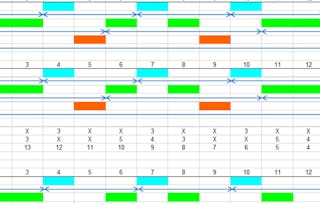This course can also be taken for academic credit as ECEA 5315, part of CU Boulder’s Master of Science in Electrical Engineering degree.
Course Description: In this course, students will design and build a microprocessor-based embedded system application using a real-time operating system or RT POSIX extensions with Embedded Linux. The course focus is on the process as well as fundamentals of integrating microprocessor-based embedded system elements for digital command and control of typical embedded hardware systems. Lab Description: The course requires the student to install embedded Linux on the Raspberry Pi ARM A-Series System-on-Chip processor. This course must be completed using a Raspberry Pi as an embedded system (headless) not a PC running Linux. You will however find Linux as a useful host development system or Windows with an SSH terminal access tool such as Putty, MobaXterm, or equivalent. This course includes specific hardware and software requirements. Please review the FAQ below for complete details.
















